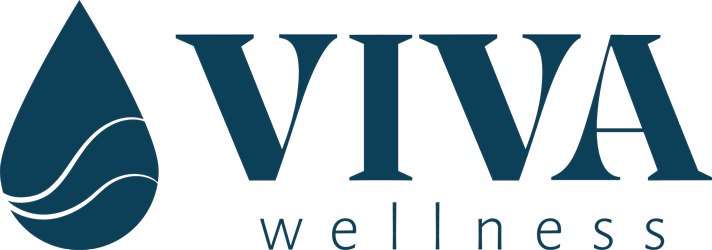We Asked One of Our Nurse Practitioners.
Taking an integrative approach to wellness is core to how we approach health and weight loss at VIVA Wellness. So absolutely yes we are known for our medical weight loss plans, but we also focus on empowering you with our nutritional counseling and other wellness services that support the whole human. While it’s exciting that the internet is always buzzing with the latest wellness trend and people seem curious to experiment. We also stay up to speed on these trends, offering our perspective, and often experimenting within our own lives to be able to offer you our tried and true feedback that pairs with medical and/or wellness community consensus.
One such topic, rooted in many ancient traditions and more recently all the rage with “biohacker” circles, is now showing promise as a versatile tool when used in a number of situations.
 VIVA Wellness’ very own NP Rachel explores an introduction to fasting below, but stay tuned for additional posts in the series, including types of fasting such as water fasts, fast mimicking diets, etc.
VIVA Wellness’ very own NP Rachel explores an introduction to fasting below, but stay tuned for additional posts in the series, including types of fasting such as water fasts, fast mimicking diets, etc.
Fasting has been shown to have a multitude of health benefits and repeatedly demonstrates efficacy in clinical trials as a weight loss strategy. We love it as an adjunct to healthy dietary strategies, whether your goal is to lose weight, heal digestive dysfunction, promote cellular health, or heal metabolic imbalances.
Whether you have some experience with fasting or are new to the practice, it’s important to understand the basics, know how to individualize these techniques to support a healthy lifestyle, and know how to identify common issues that can arise with fasting.
What Does Fasting Do for the Body?
After consuming food, our digestive system is hard at work for approximately 4 hours. Whether we are busy carrying on with our day, or sleeping during that time frame, our body is putting an immense amount of energy into breaking down the food consumed, abstracting vital nutrients, regulating our blood sugar response, and moving the digested food contents through our GI tract.
At around the 4-hour window, our body shifts into a repair state, and this is where fasting magic begins. With the ability to take the focus away from digestion, our cells move into clean-up and repair mode. Every cell in our body requires maintenance, and our bodies do a remarkable job of doing just that. But when we are constantly re-introducing food contents into the digestive tract, the focus must pivot back to spending energy on digestion. When we allow time for our body to focus in on cellular repair, we see clean-up work kick into action.
Now, while repair mode is being activated, we still need an energy source. Without glucose (in the form of carbohydrates) being introduced into the GI tract, the body has to tap into its own stored energy. The first place to go is the liver, where we store glucose in the form of glycogen. As our body taps into that supply, we tend to experience hunger signals. Think of this as communication from your body telling you “hey, I’m tapping into some emergency supply so ya better go find something to eat.” When we push past this crucial point, our crafty body will move from stored glycogen to stored fat. We have the ability to tap into stored fat and utilize that in the form of ketones, which appropriately fuel the body when glucose supplies have run short. For some people, this transition can be extremely difficult and may take gentle encouragement and time for our body to practice (especially if we have spent a long time without this practice by eating carb-heavy and continuously snacking). Rest assured, we can re-train the body to be metabolically flexible, and readily move back and forth from using glucose to fat fuels.
As we move further into the fasted state, and ketone utilization is up and running, hunger tends to dissipate. This is when real cellular clean-up happens. Our body begins participating in something called autophagy—which is literally the act of breaking down old, dysfunctional cells and using their components to build anew. The DNA within our cells gets looked at more closely as well, which is imperative for promoting appropriate translation of our genes in the form of proteins and bodily processes and has anti-aging and anti-neoplastic benefits.
Longer Fasting Period Benefits
If you are toying with pushing into longer fasts, we continue to deepen the body’s self-cleaning processes. There is a surge in HGH (human growth hormone) around 24 hours into a fast, which is a key hormone for muscle mass increase, weight loss, and hormone optimization. We see cellular shedding and renewal of intestinal mucosal cells around 48 hours into a fast. If your fast extends into 72 hours+, we have stem cell turnover and immune strengthening benefits that are difficult to replicate under any other circumstance.
Now, we don’t recommend that you wake up one day and dive straight into a 72-hour fast! Not only will it feel tremendously difficult, but it also runs the possibility of being dangerous or inappropriate depending on your specific medical background, medication history, or menstrual cycle. So please, always make sure to collaborate with a medical professional and develop a plan to ease into fasting in a supportive and nourishing way!
Subscribe to our newsletter or keep an eye on this space for the types of fasting. If you’d like to explore fasting with the guidance of one of VIVA Wellness’ Nurse Practitioners within a weight loss program, please be in touch to start the conversation.
